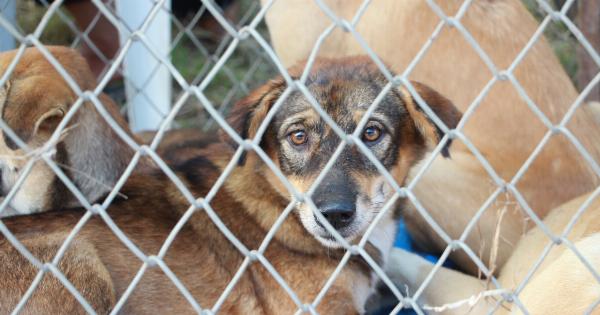Animal cruelty has been a long-standing issue that has been generating outrage and concern from people of all walks of life. From domesticated pets to farm animals, the cruelty inflicted on creatures cannot be ignored.
While animal welfare activists have been fighting for stricter legislation against animal cruelty, it seems that the issue is finally receiving the attention it deserves from lawmakers and law enforcement authorities. There is a growing recognition that tougher consequences are needed to deter and punish those who perpetuate animal cruelty.
Lack of Adequate Consequences for Animal Abusers
One of the most significant challenges that animal welfare advocates face is the lack of adequate consequences for animal abusers. Until recently, animal cruelty laws have varied significantly from state to state.
In many states, animal cruelty laws only offer lenient fines and minimal jail terms for perpetrators. This laxity fails to deter animal abusers, who see the paltry fines as a small price to pay for their violent conduct.
Animal welfare advocates have long pushed for tougher consequences for animal cruelty. Some states have taken steps to change their laws to ensure that animal abusers face appropriate punishment.
In 2019, Illinois became the first state to make animal cruelty a felony offence for first time offenders. The new law carries a maximum penalty of up to three years in prison and a hefty fine for those found guilty of animal abuse.
Recent Crackdown on Animal Abuse
Recent events have given further momentum to the effort to crack down on animal abuse. In 2020, a raid on a puppy mill in Georgia led to the arrest of 21 people, with over 700 dogs rescued from inhumane conditions.
The raid came following a year-long investigation and was considered one of the largest-ever rescues of dogs in the United States. The people involved in the puppy mill were charged with animal cruelty and other charges, with some facing up to 37 years in jail.
Another notable case that has brought animal cruelty to the forefront is the death of George Floyd. Floyd’s death at the hands of police officers in Minneapolis led to a wave of protests across the United States and beyond.
The attention on police brutality also prompted a greater focus on systemic racism and injustices in other areas, including a spotlight on animal cruelty. Activists have pointed out the link between police brutality and animal cruelty and called for a renewed focus on justice for animals.
The Need for Stricter Consequences
The recent developments have highlighted the need for stricter consequences for animal abusers.
While some states have taken steps to address the issue, there is still a long way to go to ensure that perpetrators of animal cruelty face appropriate punishment. Lawmakers and law enforcement authorities need to recognise the seriousness of animal cruelty and take decisive action to curb it.
One of the key ways to crack down on animal abuse is to ensure that consequences for animal cruelty are consistent and more severe.
This not only provides a deterrent for those who would abuse animals, but it also sends a message that society takes animal cruelty seriously and that such conduct will not be tolerated.
Examples of Tougher Sentences for Animal Abusers
There have been instances where courts have handed down tougher sentences for animal abusers. In 2018, a Kansas man was sentenced to more than seven years in prison for beating his girlfriend’s dog to death.
In 2019, a Minnesota man was sentenced to 90 days in jail after tying up his dog and letting it starve to death. These cases demonstrate that there are judges who take animal cruelty seriously and are willing to impose harsher sentences on those who perpetrate such violence.
Impact of Tougher Consequences
The impact of tougher consequences for animal abusers could be significant. Not only would it act as a deterrent for those who may consider being cruel to animals, but it would also lead to a greater awareness of animal welfare issues.
People would be more inclined to report animal cruelty knowing that there are appropriate consequences for such actions. Furthermore, such consequences could also act as a warning sign for those who may be inclined towards violence against humans, with studies showing that animal abuse is often a precursor to violence against people.
Conclusion
Animal cruelty is a serious issue that requires immediate and sustained action. While there have been positive steps taken to address the issue, there is still a long way to go to ensure that perpetrators of animal cruelty face appropriate punishment.
Tougher consequences for animal abusers would act as a deterrent and encourage a greater focus on animal welfare issues. Lawmakers and law enforcement authorities need to recognise the seriousness of animal cruelty and take decisive action to curb it.































